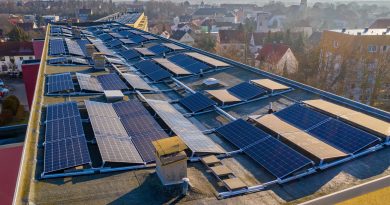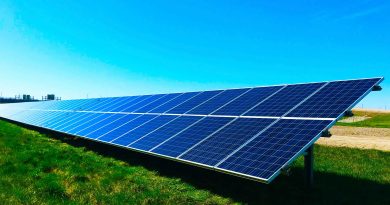Why Solar Energy – Is it important to switch?
Table of Contents
- 1 Introduction
- 2 Section 1: Environmental Impact
- 3 Section 2: Economic Benefits
- 4 Section 3: Energy Independence
- 5 Section 4: Government Incentives
- 6 Section 5: Increased Property Value
- 7 Section 6: Low Maintenance Requirements
- 8 Section 7: Technological Advancements
- 9 Section 8: Contributing to a Sustainable Future
- 10 Conclusion
Introduction
The transition to solar energy represents a pivotal step in addressing environmental concerns and embracing sustainable power solutions. In this blog post, we will explore the compelling case for choosing solar energy and why making the switch is not just a trend but a crucial move toward a cleaner and more sustainable future.
Section 1: Environmental Impact
1.1 Reduction in Carbon Emissions
One of the primary reasons to choose solar energy is its positive impact on the environment. Solar power systems generate electricity without emitting harmful pollutants, significantly reducing carbon emissions and combating climate change.
1.2 Preservation of Natural Resources
By harnessing the power of the sun, solar energy reduces dependence on finite fossil fuels, preserving valuable natural resources for future generations. This shift aligns with the global effort to move towards sustainable and renewable energy sources.
Section 2: Economic Benefits
2.1 Cost Savings on Energy Bills
Choosing solar energy translates into long-term cost savings on energy bills. Solar power systems generate electricity on-site, reducing reliance on traditional grid power and mitigating the impact of fluctuating energy prices.
2.2 Return on Investment (ROI)
While there is an initial investment in installing solar panels, the return on investment is substantial. Over time, the savings on energy bills and potential government incentives contribute to a positive and financially prudent decision.
Section 3: Energy Independence
3.1 Reduced Reliance on External Sources
Solar energy empowers individuals and businesses with a degree of energy independence. By generating electricity on-site, there is a reduced reliance on external power sources, ensuring a more stable and resilient energy supply.
3.2 Grid Support and Flexibility
Solar power systems can contribute excess energy back to the grid, providing support during peak demand periods. This two-way interaction enhances the flexibility of the energy infrastructure, benefiting both users and the grid.
Section 4: Government Incentives
4.1 Tax Credits and Rebates
Governments worldwide incentivize the adoption of solar energy through tax credits and rebates. Taking advantage of these financial incentives makes the switch to solar energy more accessible and financially attractive.
4.2 Renewable Energy Certificates (RECs)
Investors in solar energy may earn Renewable Energy Certificates (RECs), reflecting the environmental benefits of using renewable energy. These certificates can be traded or sold, offering additional financial incentives.
Section 5: Increased Property Value
5.1 Enhanced Resale Value
Homes and businesses equipped with solar power systems often experience an increase in property value. The perceived long-term cost savings and environmental benefits associated with solar installations make such properties more attractive to potential buyers or tenants.
5.2 Marketability and Appeal
Solar-equipped properties have a competitive edge in the real estate market. The growing demand for sustainable features positions solar power systems as valuable assets, contributing to a property’s marketability.
Section 6: Low Maintenance Requirements
6.1 Minimal Operating Costs
Solar power systems have minimal operating costs once installed. Routine maintenance is generally straightforward, and the durability of solar panels ensures a low-risk, low-cost investment over time.
6.2 Long Lifespan
Solar panels are designed to withstand the elements and typically have a long lifespan. The durability of the system contributes to its low maintenance requirements, making it a hassle-free and reliable investment.
Section 7: Technological Advancements
7.1 Improved Efficiency
Ongoing technological advancements in solar panel technology lead to improved efficiency. Modern solar power systems can generate more power from the same amount of sunlight, enhancing overall energy production.
7.2 Smart Integration
Solar power systems now come equipped with smart technologies, allowing for real-time monitoring and optimization. These features enhance system performance, providing users with greater control and efficiency.
Section 8: Contributing to a Sustainable Future
8.1 Environmental Stewardship
Choosing solar energy is a proactive step towards environmental stewardship. By opting for a clean and renewable energy source, individuals and businesses contribute to the broader goal of creating a more sustainable and eco-friendly future.
8.2 Inspiring Change and Innovation
The decision to switch to solar energy inspires change and innovation. As more individuals and businesses embrace sustainable practices, it creates a ripple effect, encouraging further advancements in renewable energy technologies and fostering a culture of environmental responsibility.
Conclusion
The case for choosing solar energy extends beyond individual benefits to encompass global environmental and economic considerations. From reducing carbon emissions and preserving natural resources to cost savings and increased property value, the reasons to make the switch to solar are compelling. As the world collectively strives for a sustainable future, choosing solar energy emerges as a pivotal and impactful decision that transcends individual actions, contributing to a cleaner, greener, and more resilient planet.



